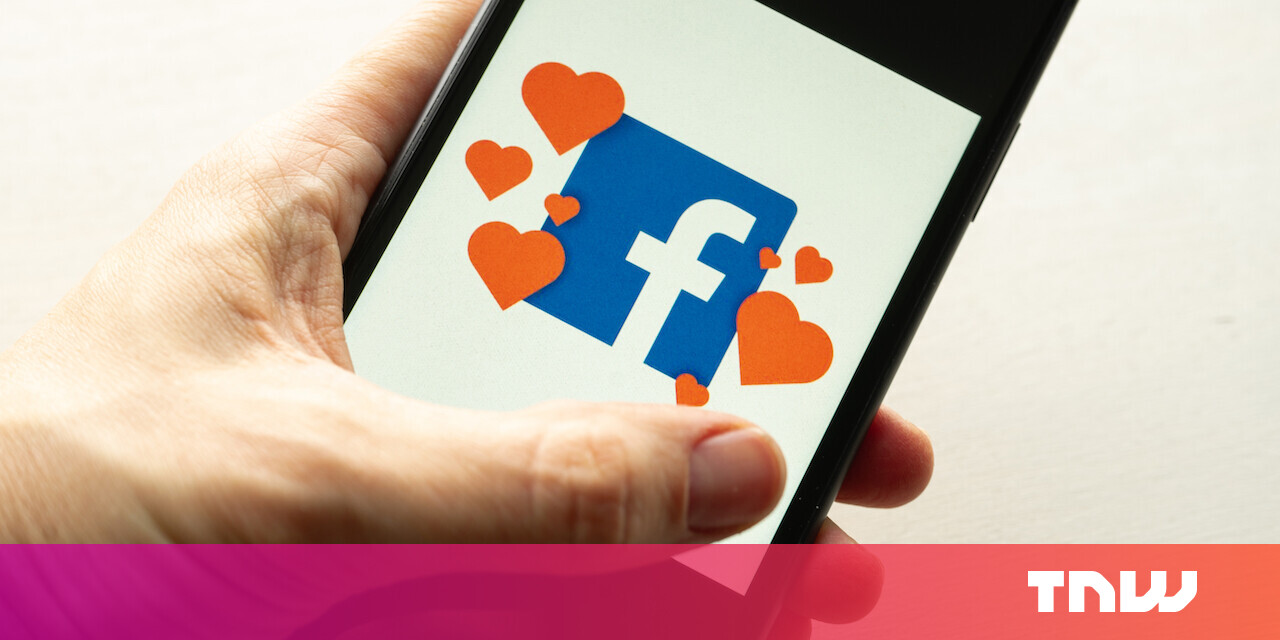Facebook Inc, now called Meta, announced its dating application, Facebook Dating, in May 2018. There was real excitement, with people expecting a revolutionary dating app that would soon beat Tinder.
And it is no wonder when you consider the size of the company, its technical capabilities, and most importantly the large volume of data that Facebook has collected about its users. After all, research shows that Facebook knows us better than our mums, so why wouldn’t it live up to its goal of creating “meaningful relationships”?
But four years later, it hasn’t taken over the market – most people have simply forgotten about it. Numerous reports claim the dating app practically doesn’t function. Facebook’s own data suggest not many people use the service – about 300,000 in New York, compare with the claimed 3 million Bumble users in New York.
As an online dating technology researcher, I had an eye on Facebook Dating since its announcement. But as I never heard anything about its market success, it took me a while to look into it. Now, I think I have a good idea of why the app failed.
My experiment
When I activated my Facebook Dating profile ( purely out of academic curiosity), I was overwhelmed by the number of very attractive profiles that I was exposed to in the first few hours. I started pressing “like”, soon receiving “match” notifications, meaning people had also “liked” me.
My own research shows that receiving a positive signal on a dating app for a male heterosexual user is a rather rare event. Nevertheless, my phone didn’t stop buzzing for hours. But I started checking the profiles and soon realized this was too good to be true – with the matches seemingly out of my league.
To see what was going on, I started chatting. I didn’t have ethics clearance from my university for full-on research, therefore I made it clear on my profile I was there just for chatting.
But writing a couple of messages to one person, I got a phone number and an invitation to take things to WhatsApp. My past work has shown this usually happens after at least 20 messages and within three to four days. This was light-speed-dating – according to science.
Within a few hours, I had a long list of attractive matches who all wanted to talk to me “about interesting things” – not on the app, but on WhatsApp. Interestingly, nobody sent me an Irish number (often UK or Polish), even though they all lived in Ireland, supposedly.
Things got even weirder quickly. Not only did the text messages look very similar, but also the profile names including Lily, Sandra, and Miriam gradually turned to Tomasz, Moises and Andrew, as I continued liking and matching on the app. When I asked “Andrew” from Japan if “her” name is common for girls in Japan, she said it’s her German name. Tomasz, aka Diana, said it’s her ex-boyfriend’s name and Moises didn’t reply.
At this point, I started to suspect that I was dealing with an organized phishing campaign with the goal of having my phone number via a WhatsApp chat combined with my name, and heaven knows what would come next.
If there is one social network company that could verify the authenticity of its users, it would be Facebook/Meta. The wealth of data that we have shared with the app makes it very easy for them to verify the accounts. In fact, we rely on Facebook authentication system to log in to many other services and apps, including Tinder and Bumble.
Why then didn’t Facebook bother to remove all these fake profiles?
Trouble on the horizon
Facebook Dating coincided with all sorts of scandals, including the Cambridge Analytica one, and parliamentary questioning. Maybe an invasive use of personal data for matching purposes would have raised more angry voices. It seems the original vision for Facebook Dating may have been dead in the water before it was properly launched.
The rather primitive design of the app suggests that there was little attempt to compete with the existing dating apps. Your experience would be similar to your experience on Tinder ten years ago.
It seems most likely intentional that Meta allows fake accounts to lurk around Facebook Dating. There are simply aren’t many real users. If the fake accounts are removed the app practically becomes empty and Facebook wants us to see many profiles to stay around the app a bit longer.
So what can we learn from all this? It might be hard for users to detect fake accounts on dating apps immediately, therefore it is important not to share your phone number, and other private information before a level of trust is built. Eager invitations to take things to the next level, generic profile descriptions, and rather inconsistent replies to your messages could be all bad signs to beware of.
For the first time since its launch in 2004, the number of Facebook users stopped growing this past quarter. And as many of us are speculating, this may be a reason why the company has chosen to change its name to separate Meta from Facebook, the social network, and attempt to focus on other areas, such as the metaverse. So perhaps the failure of Facebook Dating was an early sign that Facebook’s problems ran deep.
The Conversation approached Meta for a comment but didn’t get a reply.![]()
This article by Taha Yasseri, Associate Professor, School of Sociology; Geary Fellow, Geary Institute for Public Policy, University College Dublin is republished from The Conversation under a Creative Commons license. Read the original article.


